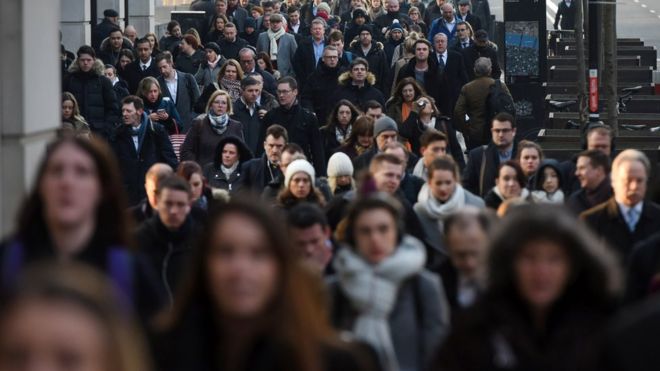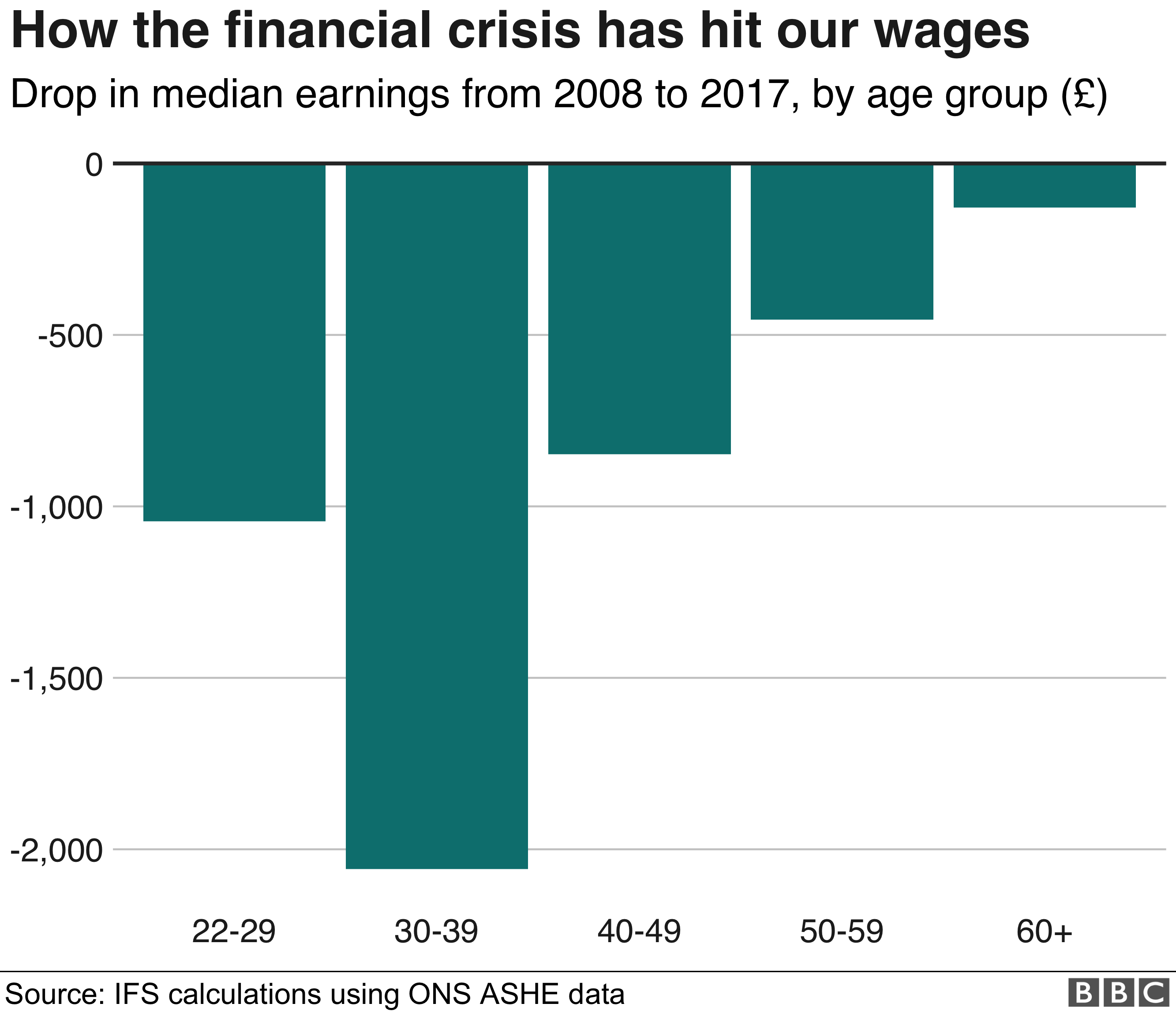
Pay for workers in their 30s is still 7% below the level at which it peaked before the 2008 banking crisis, research has suggested.
The Resolution Foundation think tank said people who were in their 20s at the height of the recession a decade ago were worst hit by the pay squeeze.
It suggested the crisis had a lasting "scarring" effect on their earnings.
The foundation said people in their 30s who wanted to earn more should move to a different employer.
The research found those who stayed in the same job in 2018 had real wage growth of 0.5%, whereas those who found a different employer saw an average increase of 4.5%.
- How did the crisis affect your finances?
- Workers are £800 a year poorer post-crisis
- Who was to blame for the financial crisis?
Economic analyst Nye Cominetti said the UK was "finally starting to deliver a pay recovery", but added: "Whether this recovery continues to build momentum in 2019 will depend in large part on what happens with Brexit."

Ms Cominetti said the pay squeeze was especially trying for people "unlucky enough to enter the labour market during the financial crisis".
Resolution Foundation policy analyst Dan Tomlinson said: "It's important that we see pay growth returning, productivity growth driving higher pay and helping these people [to] be able to afford to do things like settle down, have a family, and move into their own home."

In 2018, analysis carried out for the BBC by the Institute for Fiscal Studies (IFS) showed that people in their 30s were earning £2,100 a year less than people in the same age group in 2008.
Paul Johnson, director of the IFS, said: "The average earnings of those in their 20s and 30s fell especially sharply in the immediate aftermath of the recession, perhaps as employers were able to cut starting wages more than wages of those already in work."
While this age group has seen earnings grow in recent years, it has not been enough to make up for initial losses, he said.

إرسال تعليق